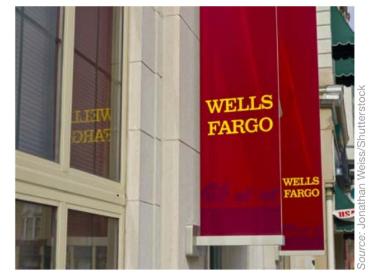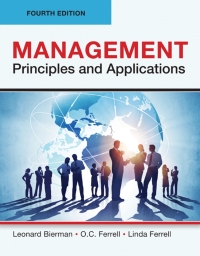Until recently, Wells Fargo was the world's largest bank. Its victory was short-lived, however, when J.P. Morgan
Question:
Until recently, Wells Fargo was the world's largest bank. Its victory was short-lived, however, when J.P. Morgan overtook Wells Fargo in 2016. The loss of its place as the world's biggest bank came in the wake of a large-scale cross-selling scandal in which it was revealed that Wells Fargo employees had faked 3.5 million customer accounts to meet shortterm sales goals. Approximately 5,300 employees were fired, and the firm was slapped with a \(\$ 185\) million fine by the Consumer Financial Protection Bureau (CFPB).
September 2016 marked the unfolding of Wells Fargo's entanglement in a widespread scandal that would implicate several high-level executives and thousands of employees. On September 8, the CFPB, the Los Angeles City Attorney, and the Office of the Comptroller of Currency levied a massive \(\$ 185\) million fine against Wells Fargo, claiming the firm had opened up and/or applied for 2.1 million customer bank or credit card accounts without permission from customers. Furthermore, a bank official acknowledged that the company had terminated over 5,300 employees in relation to the allegations.
Investigations revealed that controversial sales goals most likely encouraged employees to open accounts without customers' permission and knowledge. Employees had continually engaged in fraudulent activities such as opening up fake bank accounts and falsifying signatures to satisfy sales goals and earn financial rewards under the bank's incentive-compensation program. Evidence shows that Wells Fargo had unrealistic sales goals and did not have systems in place to ensure employees were actually engaging in selling.

Although the accusations claimed Wells Fargo employees had opened fake customer accounts since 2011, managers at Wells Fargo claim these same practices had been occurring long before. Susan Fischer, a former Wells Fargo branch manager, confirmed that these shocking sales tactics that encouraged employees to open unauthorized accounts had been around much longer than bank executives have acknowledged. A letter to the CEO from 2007 was recovered that described how employees were opening up fake accounts and forging customer signatures. CEO Stumpf claims he never received this letter or similar letters. However, several employees are coming forward to claim that they reported the misconduct and had their employment terminated as a result. If true, this would directly violate laws that protect whistle-blowers from retaliation.
To reach its lofty sales goals, Wells Fargo also set up incentives to engage employees, which increased commissions around the product being emphasized. These products were cross-sold to customers with an aggressive sales incentive program tied to employee compensation. This incentive program suggests that Wells Fargo executives, managers, and employees forgot that a bank's reputation is built on a basic cultural value of trust. Rather, it falsely became a leader in the banking industry through the utilization of unrealistic sales goals. Managers at many branches played a large role in the establishment of unauthorized accounts..,.,
Questions
1. How did Wells Fargo's focus on short-term gains violate the duties owed to consumers, regulators, and employees?
2. Describe how the Wells Fargo scandal demonstrates that organizational leaders must not only establish goals but also ensure that those goals are being acted upon appropriately.
3. Why are ethical values useless unless they are continually reinforced within the company?
Step by Step Answer:

Management Principles And Applications
ISBN: 9781942041719
4th Edition
Authors: Leonard Bierman, O.C Ferrell , Linda Ferrell





